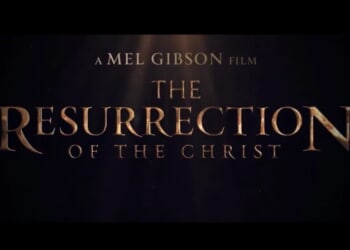Judy Terry is a marketing professional and a former local councillor in Suffolk.
Not content with covering prime agricultural land with solar farms and pylons, and imposing a punitive new tax on hard-working farmers, the Labour government is now targeting ‘ordinary people’ by encouraging the sale of allotments to provide new housing.
At a time when the UK’s self sufficiency in the amount of food production fell to 62 per cent in 2023 according to the latest statistics published by the Department for the Environment, Food & Rural Affairs, and yields are being reduced further due to weather changes, whilst some birds and other wildlife species are in decline, we should be protecting these spaces rather than destroying them.
Allotments make an invaluable contribution to both urban and rural communities. They are not just about growing produce, but encourage engagement across all society and age groups, sharing knowledge and expertise. Bringing people together in a friendly environment helps them to relax and talk about issues of concern to them, helping their mental health and general wellbeing, which is especially important for men who are reluctant to discuss their own problems.
Depending on levels of security, allotment holders can usually access their plots at any time, sustaining contact with, and welcoming, new members as well as those who may have given up their allotment due to ill health or financial issues. Meeting up to enjoy coffee and cake over a chat, catching up with local gossip, seeking advice, whether about health, job opportunities, or family, as well as what to grow is integral to allotment popularity and demand. People share seeds, bulbs, flowers, and vegetables as well as equipment, often repairing items which would otherwise end up in landfill.
With technology so integral to everyday life, having young people on site to support those who are embarrassed to admit that they may not understand BT’s landline changes, or how to manage and update their own ‘smart’ phones is not only invaluable, but also raises awareness of social differences and the importance of developing good communication skills which are crucial to successful businesses.
In Ipswich, alone, there are 17 allotment fields providing 2,100 plots across 60 acres, with a standard plot size of 250 square meters. They are a safe place for individuals and families and for working with schools, as well as for older people and those with disabilities; plots can be shared and raised beds can provide opportunities for the elderly and those in a wheelchair who want to participate within a friendly and supportive community. Gardening is a popular hobby but not everyone has their own space, or even a window box, so doing it in company is important, and can prevent loneliness.
Allotment holders are also generous, giving flowers and produce like rhubarb, salads, tomatoes and vegetables to neighbours, friends, and charity groups, including those offering meals for the deprived and homeless. They also provide safe places and food for birds and other wildlife.
New developments tend to lack the open spaces which are so beneficial to communities and the environment, providing play areas, and sports facilities, places where residents can meet up casually. So public parks are also important, and Ipswich is fortunate to have a number of significant conveniently located historic parks offering a range of facilities, some with cafes, whilst also attracting wildlife, including owls which have taken up residence in an ancient tree.
A Green Flag Award winner for the 18th time, Christchurch Park is probably the best known to local residents and visitors because of its fine museum, housing antiques, historic pottery, and some excellent artworks. Working alongside staff, volunteers provide guided tours to help with visitors, offering special events to attract children during holiday seasons. The park is popular for regular markets, music and fireworks, Remembrance Sunday, and special national and local celebrations, or for a dog walk or park-run.
Holywells Park has just been awarded a Green Flag for the 16th time, whilst Bourne Park is a winner for the sixth successive year.
Chantry Park is a designated Conservation Area, covering 124 acres, home to Ipswich & Suffolk Cricket Club, it also has a nursery which works with Suffolk New College to train students in horticulture, plant nurturing and landscape management. Members of the public can also buy plants from the nursery.
Alexandra Park’s free Multicultural festival is always popular, featuring food stalls and world class entertainment, together with a children’s fairground.
Less well known, Gippeswyk Park is close to the station and Portman Road football stadium. It has numerous football pitches and 2 tennis courts.
The high quality of these, and other parks and open spaces across the town, can only be achieved by the dedication of park staff and the numerous volunteers who take such pride in what they do, working hard to care for long-established trees and shrubs, ensuring seasonal bulbs add to the character. Inevitably, litter picking is vital to sustaining the environment, and there are regular patrols to deal with drug dealing, keeping areas safe and welcoming.
Building relationships with like minded people contributes to general wellbeing and fitness, whatever one’s age. Allotments – and parks – are part of that vital culture of supporting each other with a shared passion. They must be protected.





![Gavin Newsom Threatens to 'Punch These Sons of B*thces in the Mouth' [WATCH]](https://www.right2024.com/wp-content/uploads/2025/08/Gavin-Newsom-Threatens-to-Punch-These-Sons-of-Bthces-in-350x250.jpg)
![ICE Arrests Illegal Alien Influencer During Her Livestream in Los Angeles: ‘You Bet We Did’ [WATCH]](https://www.right2024.com/wp-content/uploads/2025/08/ICE-Arrests-Illegal-Alien-Influencer-During-Her-Livestream-in-Los-350x250.jpg)

![Black BET Billionaire Donor Stuns Democrats, Gives $500K to Winsome Earle-Sears [WATCH]](https://www.right2024.com/wp-content/uploads/2025/08/Black-BET-Billionaire-Donor-Stuns-Democrats-Gives-500K-to-Winsome-350x250.jpg)






